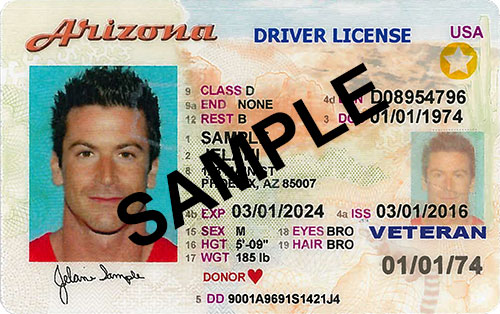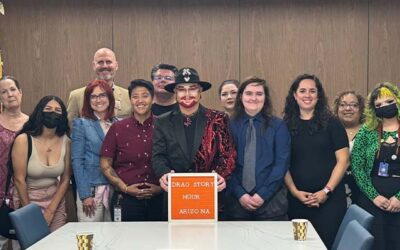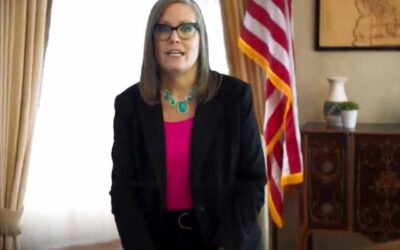By Corinne Murdock |
On Monday, the Senate Elections Committee passed a bill requiring voter ID for those turning in early ballots on Election Day. The committee passed the bill, SB1135, along partisan lines: 5-3.
SB1135 also requires early ballots not delivered or mailed to the county recorder or other elections officers to be exchanged by the voter for a regular ballot at a polling place or voting center by 7 pm on Election Day. Electors who exchange their early ballot for a regular ballot must spoil their early ballot and receive a regular ballot from an election official.
An earlier version of the bill would’ve required automatic removal of voters from the Active Early Voter List (AEVL) if they bring their early ballot to a polling place to vote in person. However the bill sponsor, State Sen. John Kavanagh (R-LD03), removed this provision out of the bill via an adopted amendment.
State Sen. Juan Mendez (D-LD08) insisted that the requirement to spoil early ballots would disenfranchise voters, raising the hypothetical of a voter who forgets their ID and may not get to vote because of it. Kavanagh countered that those voters needed to prove that the early ballot legally belongs to them.
“How do I know you’re you if you don’t have ID? How do I know you didn’t find it on the street or you stole it from a friend’s house?” asked Kavanagh.
Mendez responded that signature verification would prevent that method of voter fraud. Kavanagh disagreed, arguing that signature verification is unreliable. Kavanagh said that signatures can be copied from government websites.
Kavanagh further argued that spoiling early ballots brought in on Election Day would reduce the current issue of weeks-long counting delays, since those ballots would be exchanged for regular ones tabulated on site.
“Don’t have it go into a box and then two to three days later we still don’t know who won,” said Kavanagh.
Kavanagh noted that this spoliation process could be avoided with the passage of another bill, SB1105, which allows voters who bring early ballots in on Election Day to have their vote tabulated immediately if they bring valid ID. The committee approved that bill as well.
State Sen. Priya Sundareshan (D-LD18) argued that the bill makes voting more difficult and time-consuming. Kavanagh disputed the idea that early ballots are meant to be dropped off in person, saying that the current flexibility in law causes confusion and disorganization.
Jen Marson with the Arizona Association of Counties (AACo) warned that SB1105’s language might undermine its intended purpose. Kavanagh promised to meet with the Association.
Among those who issued public comments on the bill was Ricardo Serna, a self-identified independent voter and poll worker. Serna claimed that the bill would disenfranchise college students because they simply didn’t have the time to cast their ballot as intended. Kavanagh said he didn’t believe that was true.
“I don’t know why you would limit choices for something so important as our elections,” said Serna.
Though Serna described himself as an “independent voter” and poll worker, he’s the president of Maricopa County Young Democrats. Serna was also the district field director for Progressive Turnout Project.
Majority Leader Sonny Borelli (R-LD30) pointed out that the state’s college campuses have early voting sites. Serna said that wasn’t enough.
The committee’s three Democrats were in opposition to the bill, claiming that it wasn’t inclusive enough and prioritized efficiency over accessibility. Sundareshan argued that early mail-in voting was essential to be inclusive of minority voters and other, unspecified groups.
“We need to be providing more options to vote, more accessibility at the ballot,” said Sundareshan.
State Sen. Anna Hernandez (D-LD24) concurred, saying that voting needed to be easier for historically underserved groups. Mendez opined that the bill created more barriers and confusion for election officials.
State Sen. Ken Bennett (R-LD01) expressed concern that Kavanagh’s bill would potentially contend with other bills, such as SB1105. Bennett voted to pass the bill but indicated that he wouldn’t support it on the floor if it ultimately conflicted with legislative language with other bills. Bennett urged Kavanagh to work with other legislators issuing similar legislation to ensure its viability.
“We have to keep voters’ ability to vote first,” said Bennett. “But I think we can have accuracy and speed up the process at the same time.”
Corinne Murdock is a reporter for AZ Free News. Follow her latest on Twitter, or email tips to corinne@azfreenews.com.








